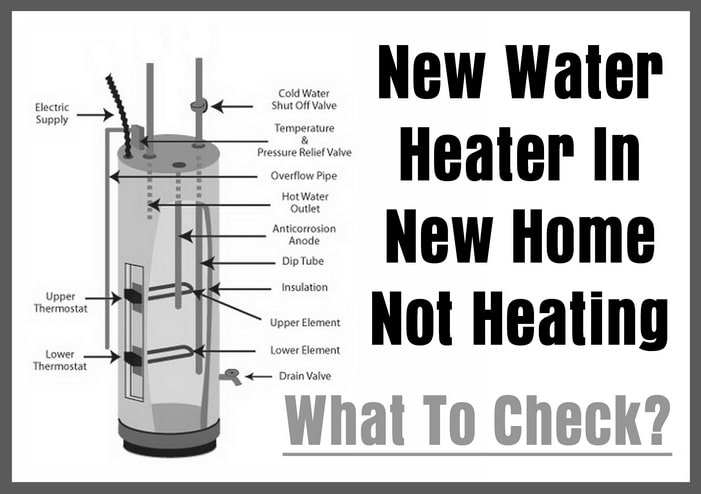electric hot water tank not heating
McHenry Plumber: Proper Sizing for the Best Water Heater

220 hook up for water heater | How to Hook Up an Electric Hot Water

Frequently Asked Questions
1. How do I choose the proper size for my water heater?
Choosing the right size for your water heater is crucial to ensure it meets the hot water demands of your household. There are a few factors to consider:
- Number of occupants in the household
- Daily hot water usage
- Peak demand periods
By analyzing these factors and consulting with a professional plumber, you can determine the ideal size for your water heater.
2. What are the consequences of having an undersized water heater?
Having an undersized water heater can lead to various problems, such as:
- Inadequate hot water supply
- Frequent temperature fluctuations
- Longer wait times for hot water
- Premature wear and tear on the unit
These issues can significantly affect your daily activities and comfort.
3. How can I calculate the hot water usage in my household?
Calculating your hot water usage involves determining the average gallons of hot water consumed by each fixture and the frequency of use. Here's a general guideline:
- Shower: 10-15 gallons per person
- Bathtub: 20-25 gallons
- Dishwasher: 6-10 gallons per cycle
- Washing machine: 7-30 gallons per load
- Sink: 1-2 gallons per minute
By adding up these estimates and considering the number of people in your household, you can get an idea of your daily hot water usage.
4. What does "peak demand periods" mean in relation to water heater sizing?
Peak demand periods refer to the times of the day when you typically use the most hot water. These are often morning and evening hours when multiple household activities, such as showering, laundry, and dishwashing, coincide. Sizing your water heater to accommodate these peak periods ensures an adequate supply of hot water when you need it the most.
5. Can I install a bigger water heater for better performance?
While it may be tempting to install a larger water heater, it is not always the best solution. Oversizing a water heater can lead to unnecessary energy consumption and increased upfront costs. It is recommended to consult with a professional plumber who can accurately assess your hot water needs and recommend the appropriate size.
6. Are there any energy-efficient options available for water heaters?
Yes, there are energy-efficient options available for water heaters:
- Tankless water heaters: These units heat water on demand, eliminating the need for a storage tank and reducing energy waste.
- Heat pump water heaters: These units extract heat from the surrounding air or ground to heat the water, resulting in significant energy savings.
- Solar water heaters: These use energy from the sun to heat water, making them highly sustainable and energy-efficient.
Consider discussing these options with a professional plumber to determine the best choice for your home.
7. How do I know if my water heater needs repair or replacement?
There are several signs that indicate your water heater may need repair or replacement:
- Inadequate hot water supply
- Inconsistent water temperature
- Strange noises coming from the unit
- Visible leaks or corrosion
- Old age (typically over 10-15 years)
If you encounter any of these issues, it's recommended to contact a professional plumber to assess the situation and provide the appropriate solution.
8. How often should I flush my water heater?
Flushing your water heater regularly helps remove sediment buildup and prolongs its lifespan. It is generally recommended to flush the unit once a year. However, if you live in an area with hard water or notice a decrease in performance, more frequent flushing may be necessary.
9. Can I install a water heater myself?
While some homeowners may have the necessary skills to install a water heater themselves, it is generally recommended to hire a professional plumber. Improper installation can lead to various issues, including water leaks, damage to the unit, and potential safety hazards. A licensed plumber ensures the installation is done correctly and up to code.
10. How long can I expect my water heater to last?
The average lifespan of a water heater varies depending on the type and maintenance. Here are some estimations:
- Conventional tank water heater: 10-15 years
- Tankless water heater: 15-20 years
- Heat pump water heater: 10-15 years
- Solar water heater: 20+ years
Regular maintenance and prompt repairs can help extend the lifespan of your water heater.
11. What should I do if my water heater is leaking?
If you notice a water leak from your water heater, it is crucial to take immediate action:
- Turn off the power supply
- Close the water supply valve
- Contact a professional plumber for repairs
Ignoring a leaking water heater can lead to further damage and potential flooding.
12. How much does it cost to replace a water heater?
The cost of replacing a water heater depends on various factors:
- Type and size of the new water heater
- Installation labor costs
- Additional materials or modifications required
On average, the cost can range from $800 to $2,500. It's recommended to obtain quotes from trusted plumbers to get an accurate estimate for your specific situation.
This comprehensive article addresses various questions and concerns about water heaters. It covers topics such as proper sizing, hot water usage calculation, energy-efficient options, signs of repair or replacement, maintenance, installation, lifespan, leaks, and replacement costs. With expert advice and valuable information, readers gain a thorough understanding of water heaters and can make informed decisions for their homes.